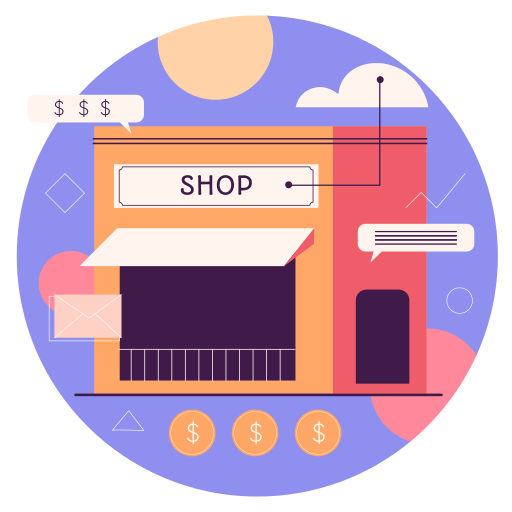The eCommerce sector is experiencing continuous growth. As more consumers turn to their mobile devices for shopping, now is the prime time to initiate and expand an eCommerce business.
If you’re considering launching your initial online store, be prepared for a journey of learning. A great starting point is to explore the diverse types of eCommerce business models and platforms.
Understanding the available business models will simplify the process of managing your online store and determining how to profit from it. Let’s delve deeper into the different eCommerce business ideas.


Multiple types of eCommerce business models


1. Business-to-business (B2B)
The architecture of the business-to-business eCommerce model is just how it appears. It is the location where businesses offer their commodities to other businesses. Products might be anything that improves another company’s business processes.
A software company is an excellent example of a B2B business. Consider Salesforce, HubSpot, and SurveyMonkey. All of these items are for the benefit of businesses, and the average mom-and-pop consumer would not make sense to invest in enterprise software.
2. Business-to-consumer (B2C)
The business-to-consumer eCommerce approach is simple as well. It occurs when a company is offering things directly to consumers online or through a mobile device.
Business-to-consumer eCommerce companies are those that you and I visit every day to buy products like apparel, books, makeup, and so on. It’s also important to remember that B2C businesses don’t have to exist completely online, as Amazon and eBay do.
B2C businesses can also open a physical store and, if appropriate, launch an eCommerce website. Large fashion businesses such as Nordstrom, J. Crew, H&M, and others are examples of this.




3. Consumer-to-consumer (C2C)
When one consumer creates and sells an item to another consumer, this is considered as a consumer-to-consumer business model.
A consumer can sell stuff to another consumer through a platform such like Amazon, Etsy, or eBay.
Consumers can even put up a C2C store on their personal website using online eCommerce solutions like WooCommerce.
4. Consumer-to-business (C2B)
Consumer-to-business is the final form of eCommerce business model. This is where a consumer or an owner offers their goods or services to businesses.
This is where a consumer or an owner offers their goods or services to businesses.A business strategist, a freelancer graphic designer, or a social media influencer with a wide audience are all examples of C2B firms.
What are the many kinds of eCommerce websites? Whatever eCommerce company model you select, they all have one thing in common. All eCommerce stores are internet-based. This implies that you require a website.


Types of Ecommerce websites


Single brand website


Online retailers


Affiliate websites


Marketplaces
How to generate revenue with an eCommerce website?
Dropshipping
Dropshipping is when you sell a product on your website for a commission, but the brand handles all of the shipment.
Affiliate marketing
Affiliate marketing entails selling someone else’s product on your website in exchange for a commission.
Subscription
Private labeling
Private labelling is when a brand manufactures, labels, and packages its own items.
White labeling
White labelling entails purchasing a product from a manufacturer and rebranding and repackaging it. Other income models exist, but these five are among the most frequent for new retail brands.
Others
There are other types of revenue models, but those five are among the most common for new retail brands.


